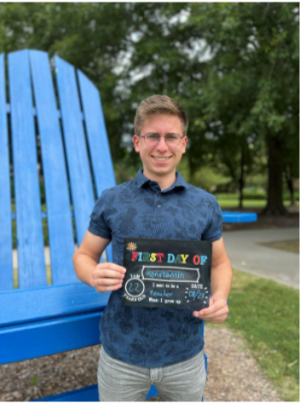Headshot of Victoria Gonzalez.
Victoria Gonzalez|Courtesy
On Feb. 16, 2024, the Alabama Supreme Court made the impactful ruling that frozen embryos are people. With this decision, people can be charged with the Wrongful Death of a Minor for the damage or destruction of embryos.
Why is this decision so controversial? It will have a direct impact on in vitro fertilization (IVF). During the IVF process, multiple embryos are created for patients and are then frozen for potential future use. However, immediately following this decision, IVF clinics in Alabama shut down temporarily to figure out how this impacted them since they routinely discard embryos deemed unviable. I find this infringement of reproductive rights a problem for two main reasons: (1) its impact on specific demographics and (2) the blatant display of religion in politics.
The intended targets of this decision are clear: anyone who is not cisgender, heterosexual or biologically capable of producing children. LGBTQIA+ individuals, single women and couples with fertility issues are the main users of IVF and unfortunately, they will be the ones who are affected most by this decision. The Alabama Supreme Court is trying to regulate the reproductive decisions of these groups.
IVF is an emotionally taxing and financially burdensome procedure, with the average cost for one round being $15,000 and typically not covered by health insurance. You pay $15,000 for a chance of a family, not a guarantee.
Going through the IVF process is difficult enough without the government meddling in the reproductive decisions of the American people. Everyone deserves to have a family, should that be what they desire, and potentially taking that away is government overreach.
Arguably, the scariest part of this ruling is the obvious violation of the separation between church and state. The best part of the United States is its rich diversity and democracy.
Under the Bill of Rights, everyone has the right to worship. It becomes an issue when someone’s religion starts impacting the lives of those who do not participate in that religion.
When asked about the decision, Chief Justice Tom Parker said, “Even before birth, all human beings bear the image of God, and their lives cannot be destroyed without effacing his glory.” Chief Justice Parker is entitled to his religion, but he supported a ruling that affects everyone. They made decisions based on a personal religious belief.
Religion should not have influence on the public good, especially in a government that prides itself on ‘freedom.’ We are citizens of a secular state, and we should be making decisions as such. This is not the first decision that has been made on the basis of religion, and I fear that it may not be the last.
On March 8, 2024, the Alabama House and Senate passed a law that granted IVF clinics and providers criminal immunity. According to AP News, the recent legislation proposals say “no action, suit, or criminal prosecution for the damage to or death of an embryo shall be brought or maintained against any individual or entity when providing or receiving services related to in vitro fertilization.”
This feels like a band-aid to a major issue. Claiming that an embryo is a child can have dangerous implications on future cases and sets a scary legal precedent. When does life begin? Who is liable? When is it murder of a minor? There are many unanswered questions that this recent bill does not address.
I remember where I was when the overturning of Roe v. Wade was announced. I felt helpless and disheartened wondering what reproductive rights will be targeted next.
With the upcoming elections, it is imperative that we exercise our right to vote. Vote for people who will make policy changes that encompass and benefit everyone. Vote for someone who will not push their agenda on the public. Vote for someone who is going to bring someone new. Just use your voice. Make it to where people in power cannot ignore you.
Victoria Gonzalez is a senior majoring in Political Science and GWSS. She focuses on amplifying the voices of those who are often silenced or overlooked. Victoria can be contacted at vgonzalez@vwu.edu.
By Victoria Gonzalez
vgonzalez@vwu.edu


